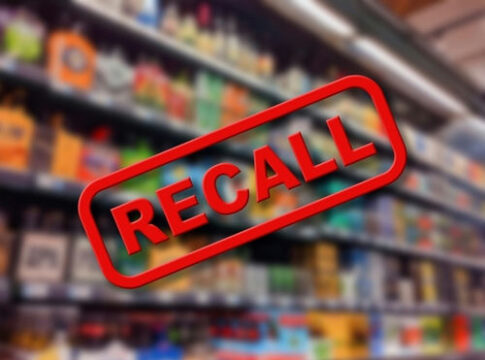Americans are once again forced to question the safety of their food supply after federal authorities intercepted radioactive shrimp destined for Walmart shelves—raising urgent concerns about border security, foreign sourcing, and the vigilance of our regulatory system.
Radioactive Shrimp Threat Detected at U.S. Ports
U.S. Customs and Border Protection agents recently intercepted a shipment of Great Value raw frozen shrimp imported from Indonesia, discovering the presence of Cesium-137—a radioactive isotope not naturally found in seafood. The detection occurred at four major ports: Los Angeles, Houston, Miami, and Savannah. These findings triggered an immediate investigation and set off protocols for food safety advisories, spotlighting the essential role of vigilant border screening at a time when Americans are rightly skeptical about the safety of imported goods.
The FDA’s subsequent testing confirmed the contamination originated from PT. Bahari Makmur Sejati (BMS Foods), an Indonesian exporter. On August 18, 2025, the FDA issued a public advisory, and Walmart quickly pulled the implicated lots from its Great Value lineup. While officials maintain that the detected Cesium-137 level—68 Bq/kg—is well below the FDA’s intervention threshold of 1200 Bq/kg, the agency warned that repeated exposure could increase cancer risk. This underscores a hard truth: even low-level radioactive contamination in our food supply is a red line for most Americans, demanding zero tolerance and decisive action.
No Contaminated Shrimp in Stores, but Consumer Confidence Shaken
Federal officials were quick to assure the public that none of the radioactive shrimp entered U.S. commerce. The recall and border intervention worked as intended, according to the FDA, and the investigation is ongoing in coordination with Indonesian regulators. Still, the incident rattles consumer trust—especially in the twelve states where the product would have been distributed if not intercepted. For many, this is a wake-up call about global sourcing and the critical need for robust, America-first food safety practices.
Walmart, as the nation’s largest retailer and a staple for millions of American families, faces heightened scrutiny. The company’s cooperation with authorities and swift recall response are necessary, but the underlying vulnerability in global supply chains remains a concern. The case is unprecedented in recent U.S. history and draws attention to the rare but real risks of radioactive contaminants slipping through international cracks—and the limits of relying on overseas producers for household staples.
Regulatory Oversight: Victory for Border Screening or Warning Sign?
Industry experts and food safety specialists agree that while the levels found in this shipment do not pose an acute health risk, any radioactive material in our food warrants immediate precaution. The swift action by Customs and the FDA demonstrates the effectiveness of American regulatory controls when properly enforced. However, this incident also exposes the vulnerabilities of a system that depends on global trade and the integrity of foreign suppliers. Conservative voices have long warned that outsourcing food production can compromise American safety and sovereignty, and this event vindicates those concerns.
As investigations continue, the focus is now on ensuring that such lapses are prevented in the future. Calls for stricter import controls, enhanced traceability, and a renewed emphasis on domestic sourcing are likely to intensify. The broader industry will face more scrutiny, and government agencies must remain vigilant—because when it comes to radioactive contamination, there’s no room for error or complacency.
Long-Term Implications: Food Safety, Policy, and Public Trust
While the immediate health risk has been contained, the long-term implications are substantial. Consumer confidence in imported seafood and Walmart’s private label brand has been shaken. Industry observers predict that this incident will lead to increased scrutiny of seafood imports, potential policy changes, and even diplomatic friction with Indonesia. Economically, Walmart and its suppliers face losses from recalls and disrupted trade, while the American public demands better protection against future threats.
Ultimately, this rare episode of radioactive shrimp at the border is a stark reminder for policymakers and the public alike: American safety must never be outsourced. Conservatives will continue to push for robust borders, transparency in the food supply, and policies that put American families first—because no one should have to fear what’s on their dinner table.
Sources:
LA Times, “Don’t eat these potentially radioactive shrimp, FDA warns”
Axios, “Radioactive shrimp recall: FDA warns against these Walmart brands”
FDA, “FDA Advises Public Not to Eat, Sell, or Serve Certain Imported Frozen Shrimp”

